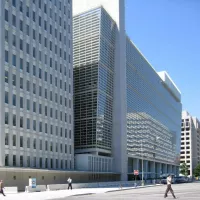Palestine, officially the State of Palestine, is a country in West Asia recognized by 147 UN member states. It comprises the Israeli-occupied West Bank, including East Jerusalem, and the Gaza Strip, known as the occupied Palestinian territories. Palestine shares most of its borders with Israel, with the West Bank bordering Jordan and the Gaza Strip bordering Egypt. It has a land area of 6,020 square kilometers and a population exceeding five million. Jerusalem is its proclaimed capital, while Ramallah serves as its de facto administrative center. Gaza City was its largest city before the 2023 evacuations.
1917: Jerusalem captured by British forces
In 1917, Jerusalem was captured by British forces led by General Allenby, marking the end of Ottoman rule in the city.
1920: Escalation of Tensions
By 1920, tensions escalated between Jewish and Arab communities, leading to violent clashes and riots across Palestine.
1920: British Mandate for Palestine
In 1920, after World War I, Palestine came under British control with the implementation of the British Mandate for Palestine.
1922: British Mandate Approved
In 1922, The League of Nations approved the British Mandate for Palestine, entrusting Britain with the administration of the region.
1929: Violent Riots Erupt
In 1929, violent riots erupted in Palestine due to disputes over Jewish immigration and access to the Western Wall in Jerusalem.
1939: Issuance of the 1939 White Paper
In 1939, the British government issued the White Paper, imposing restrictions on Jewish immigration and land purchases in Palestine, intending to limit the establishment of a Jewish state. The Zionist community in Palestine responded with a strike.
1946: Bombing of the King David Hotel
In 1946, the Irgun orchestrated a bombing at the King David Hotel in Jerusalem, resulting in the deaths of 91 people.
1947: Escalation into Civil War
In 1947, intercommunal conflict between Jews and Palestinian Arabs escalated into a civil war after a proposed partitioning by the United Nations was rejected by the Palestinians.
1947: UN Partition Plan Adopted
In 1947, the UN adopted a partition plan for a two-state solution in the remaining territory of the mandate. The plan was accepted by the Jewish leadership but rejected by the Arab leaders, and Britain refused to implement the plan.
1948: Expulsion of Palestinians during the 1948 War
During the 1948 war, around 700,000 Palestinians were expelled from their homes, marking a significant event in Palestinian history.
1948: Application of Israeli Law
East Jerusalem was effectively annexed by Israel in 1967, by application of Israeli law, jurisdiction and administration under a 1948 law amended for the purpose
1948: 1948 Palestine war
In 1948, the Palestine war resulted in the displacement of a majority of the Arab population and the establishment of Israel, events Palestinians refer to as the Nakba.
1948: Establishment of the State of Israel
On the eve of final British withdrawal, in 1948, the Jewish Agency for Israel, headed by David Ben-Gurion, declared the establishment of the State of Israel according to the proposed UN plan.
1950: Annexation of the West Bank
In 1950, Transjordan ratified the annexation of the West Bank, but this was rejected by the international community.
1959: Egypt Disbands All-Palestine Government
In 1959, Egypt initially supported the creation of an All-Palestine Government but disbanded it.
1967: Effective Annexation of East Jerusalem by Israel
East Jerusalem was effectively annexed by Israel in 1967, but this annexation is not recognized by any other country.
1967: Territory occupied
Since 1967, the term "occupied Palestinian territory" refers as a whole to the geographical area of the Palestinian territory occupied by Israel.
October 1974: PLO Recognized by Arab League
In October 1974, the Arab League summit designated the PLO as the "sole legitimate representative of the Palestinian people".
November 1974: PLO Granted Observer Status at UN
In November 1974, the PLO was recognized as competent on all matters concerning the question of Palestine by the UN General Assembly, granting them observer status as a "non-state entity" at the UN.
1979: Egypt Signals End to Claims Over Gaza
Through the Camp David Accords of 1979, Egypt signaled an end to any claim of its own over the Gaza Strip.
1980: Israel Freezes Elections for Councils
In 1980, Israel decided to freeze elections for local municipal councils and establish instead Village Leagues, whose officials were under Israeli influence.
1980: Basic Law: Jerusalem
In 1980, the purported annexation of East Jerusalem was constitutionally reaffirmed (by implication) in Basic Law: Jerusalem 1980, but this annexation is not recognised by any other country.
1987: Outbreak of the First Intifada
In 1987, The First Intifada broke out, characterized by widespread protests, strikes, and acts of civil disobedience by Palestinians in the Gaza Strip and the West Bank against Israeli occupation.
1987: Influx of Turks in Palestine Since 1987
Since 1987, approximately 400,000 to 500,000 Turks have been residing in Palestine.
1987: Release of "Wedding in Galilee" in 1987
The Palestinian movie "Wedding in Galilee" was released in 1987, contributing to the filmography of Palestinian cinema.
February 1988: Dissolution of the Hebron League
In February 1988, the Hebron League, the last of the Village Leagues, was dissolved.
November 1988: PLO Declares the Establishment of the State of Palestine
In November 1988, the PLO legislature, while in exile, declared the establishment of the "State of Palestine".
1988: 92 States Recognize State of Palestine for UNESCO Admission
In 1988, as part of the request to admit Palestine to UNESCO, an explanatory note listed 92 states, including Arab and non-Arab countries like India, that had recognized the State of Palestine.
1988: PLO Declaration of Independence
In 1988, the Palestine Liberation Organization (PLO) declared independence.
1989: Intensified Clashes
Violent clashes between Palestinian protesters and Israeli forces intensified throughout 1989, resulting in a significant loss of life and escalating tensions in the occupied territories.
1990: Strict Measures Imposed by Israeli Government
1990 witnessed the imposition of strict measures by the Israeli government, including curfews and closures, in an attempt to suppress the Intifada and maintain control over the occupied territories.
1990: Gulf War Brings Attention to the Conflict
In 1990, the Gulf War brought increased attention to the Israeli-Palestinian conflict, leading to heightened diplomatic efforts. Saddam Hussein's support for the Palestinian cause also gained support from Yasser Arafat during the war.
1991: Expulsion of Palestinians during the Gulf War
In 1991, following the invasion of Kuwait, Saddam Hussein presented a rejected peace offer to Israel in exchange for withdrawal from occupied territories, and ordered the firing of scud missiles into Israeli territory, supported by Palestinians. The war led to the expulsion of Palestinians from Kuwait and Saudi Arabia due to their government's support for Iraq.
1991: Gulf War repercussions on agriculture
In 1991, the Gulf War had severe repercussions on Palestinian agriculture, causing a 14% decline in exports to the Gulf States, which had a significant economic impact.
1993: Signing of the Oslo Accords
In 1993, the Oslo Accords were signed between Israel and the Palestine Liberation Organization (PLO), leading to the establishment of the Palestinian Authority (PA) and a potential path to peace.
1993: Oslo Accords Signed
In 1993, the Oslo Accords were signed, leading to the establishment of the Palestinian Security Services to maintain internal security in PA-controlled areas.
1994: Cave of the Patriarchs Massacre
In 1994, Baruch Goldstein, an Israeli extremist, shot 29 people to death in Hebron, known as the Cave of the Patriarchs massacre, leading to increased Palestinian opposition to the peace process.
1994: Establishment of the Palestinian National Authority
In 1994, Israel acknowledged the PLO as representing the Palestinian people, and the PLO recognized Israel's right to exist. Consequently, the PLO established the Palestinian National Authority (PNA or PA), which exercised some governmental functions in parts of the West Bank and the Gaza Strip.
1994: Election of Yasser Arafat
In 1994, Yasser Arafat was elected as president of the newly formed Palestinian Authority, marking a significant step towards self-governance.
1994: Limited banking options
Prior to 1994, the occupied Palestinian territories had limited banking options, with Palestinians avoiding Israeli banks, resulting in an under-banked region and a cash-based economy.
1995: Assassination of Yitzhak Rabin
In 1995, Israeli Prime Minister Yitzhak Rabin was assassinated by Yigal Amir, an extremist, causing political instability in the region.
1995: Oslo II Accord Signed
In 1995, under the Oslo II Accord, it was agreed that governance of Area C would be transferred to the Palestinian Authority within 18 months, but Israel has failed to fulfill these obligations.
1996: First Palestinian General Elections
In 1996, the first-ever Palestinian general elections took place, resulting in Arafat's re-election as president and the formation of a Palestinian Legislative Council.
1996: Palestine's Participation in the Olympic Games Since 1996
Palestine has been participating in the Olympic Games since 1996, with athletes competing in various sports, including athletics, swimming, judo, and taekwondo.
1996: Release of "Chronicle of a Disappearance" in 1996
The Palestinian movie "Chronicle of a Disappearance" was released in 1996, adding to the cinematic works from Palestine.
1997: Illiteracy Rate Among Women in 1997
In 1997, the illiteracy rate among women in Palestine was 20.3%, a figure that decreased by 2014.
1998: Wye River Memorandum
In 1998, Negotiations between Israel and the Palestinian Authority continued with slow progress. Also in 1998, Israel and the Palestinian government signed the Wye River Memorandum, aiming to advance the implementation of the Oslo Accords, including provisions for Israeli withdrawals and security cooperation.
1999: Ehud Barak Assumes Position
In 1999, Ehud Barak assumed the position of Israeli Prime Minister, renewing efforts to reach a final status agreement with the Palestinians.
1999: Discovery of Gaza Marine gas field
In 1999, the British Gas Group discovered the Gaza Marine natural gas field, which was lauded by Yasser Arafat as a "Gift from God".
September 2000: Ariel Sharon's Visit to Temple Mount
In September 2000, then opposition leader from the Likud Party, Ariel Sharon, made a visit to the Temple Mount and delivered a speech that angered Palestinian Jerusalemites. The tensions escalated into riots.
September 2000: Onset of the Second Intifada
Since the onset of the Second Intifada in September 2000, Israel's closure policy has significantly contributed to a decline in economic activity, widespread unemployment, and a rise in poverty.
October 2000: Escalating Violence and Jerusalem Airport Closure
In October 2000, bloody clashes took place around Jerusalem, and escalating violence resulted in the closure of Jerusalem Airport. More riots between Jews and Arabs took place in Israel.
2000: Saddam Hussein Provides Financial Support
From 2000 until his overthrow in 2003, Saddam Hussein provided financial support to Palestinian militants from Iraq during the intifada period.
2000: Muammar Gaddafi Presents 'Isratin' Peace Offer
In 2000, Muammar Gaddafi of Libya, a supporter of Palestinian independence, presented a one-state peace offer titled 'Isratin' as a potential mediator in the Arab-Israeli conflict.
2000: Construction of Government Building in Abu Dis
In 2000, a government building was built in Jerusalem suburb of Abu Dis, to house office of Yasser Arafat and Palestinian parliament.
2000: Camp David Summit Concludes Without Agreement
In 2000, the Camp David Summit aimed to resolve the remaining issues between Palestine and Israel but concluded without a comprehensive agreement.
2000: Number of banks operating
In 2000, there were 21 banks operating in Palestine.
2000: Rise of Leem Lubany and Clara Khoury Since 2000
Leem Lubany and Clara Khoury have gained acclaim in Palestinian cinema since 2000, marking their emergence in the industry.
2001: Increased Attacks and Gaza Airport Destruction
In 2001, attacks from Palestinian militant groups towards Israel increased. Gaza Airport was destroyed in an airstrike by the Israeli army.
2002: Arab League Peace Summit
Another peace summit was organized by the Arab League in 2002, however the peace process could not progress.
2002: Release of "Divine Intervention" in 2002
The Palestinian movie "Divine Intervention" was released in 2002, marking a significant event in Palestinian cinema.
2003: Construction of Barriers
Between 2003 and 2004, people from Qawasameh tribe in Hebron were killed or blew themselves up in suicide bombings. In 2003, Ariel Sharon ordered the construction of barriers across Palestinian-controlled areas and Israeli settlements in the West Bank to prevent future attacks. Saddam Hussein also provided financial support to Palestinian militants. Also in 2003, a peace proposal was supported by Arafat but rejected by Sharon.
2005: Israel Withdraws from Gaza
In 2005, Israel withdrew from Gaza in a unilateral disengagement, though the territory remained under military occupation and was blockaded by Israel.
2005: Election of Mahmoud Abbas and Israeli Withdrawal from Gaza
In 2005, Mahmoud Abbas was elected as the president of the State of Palestine. Also in 2005, Israel completely withdrew from the Gaza Strip by destroying its settlements over there.
2005: Mahmoud Abbas Becomes President
Mahmoud Abbas has been the president of the country since 2005.
2005: Release of "Paradise Now" in 2005
The Palestinian movie "Paradise Now" was released in 2005, adding to the filmography of Palestinian cinema.
2006: Hamas Wins Palestinian Legislative Elections
In 2006, Hamas won in Palestinian legislative elections, leading to a political standoff with Fatah and armed clashes, ultimately resulting in Hamas gaining control over all of Gaza.
2007: Loan facilities provided by banks
In 2007, combined loan facilities provided by all banks amounted to US$1.42 billion.
2007: Deposits in banks
In 2007, deposits in Palestinian banks were at US$1.2 billion.
2007: Partial Blockade on Gaza and Peace Summit
Since 2007, Israel has been leading a partial blockade on Gaza. Another peace summit was organized by the Arab League in 2007, with the same offer presented at the 2002 summit, but the peace process could not progress.
2008: High tech industry growth
The high tech industry in Palestine has experienced good growth since 2008.
2009: Tourism numbers
In 2009, 2.6 million people visited the Palestinian territories.
2009: Jerusalem Named Arab Capital of Culture in 2009
In 2009, Jerusalem was named as the Arab Capital of Culture, highlighting its cultural significance.
2009: Establishment of the Health Cluster for the occupied Palestinian territory (oPt) in 2009
In 2009, the Health Cluster for the occupied Palestinian territory (oPt) was established under the auspices of the World Health Organization (WHO), representing a partnership of over 70 local and international nongovernmental organizations and UN agencies.
2009: Release of "The Time That Remains" in 2009
The Palestinian movie "The Time That Remains" was released in 2009, contributing to the filmography of Palestinian cinema.
2010: Increase in cellular mobile subscribers
By the end of 2010, there were 2.6 million cellular mobile subscribers in Palestine.
2010: Tourism numbers
In 2010, 4.6 million people visited the Palestinian territories, a notable increase from 2009.
2010: Blockade of Gaza Strip economic impact
In 2010, Israel's ongoing blockade of the Gaza Strip resulted in a cost of $1.908 billion US$, representing 23.5% of Palestine's GDP that year.
2010: Demographics of East Jerusalem
In 2010, of the 456,000 people in East Jerusalem, roughly 60% were Palestinians and 40% were Israelis.
2011: Palestine's Poverty Rate at 25.8%
According to a survey in 2011, Palestine's poverty rate was 25.8%.
2011: Manufacturing sector decrease
In 2011, a World Bank report noted that the manufacturing sector's share of GDP in Palestine decreased from 19% to 10% between the signing of the Oslo Accords and 2011.
November 2012: UN General Assembly Upgrades Palestine to Non-Member Observer State
In November 2012, the United Nations General Assembly passed resolution 67/19, upgrading Palestine from an "observer entity" to a "non-member observer state", a move described as recognition of the PLO's sovereignty.
December 2012: UN Recognizes 'State of Palestine' as Official Name
In December 2012, the UN Chief of Protocol declared that 'the designation of 'State of Palestine' shall be used by the Secretariat in all official United Nations documents', thus recognizing the title 'State of Palestine' as the state's official name for all UN purposes.
2012: Water provided by Israel
In 2012, Israel provided the Palestinian territories with 52 MCM of water from its own water supply and desalinated water supplies.
2012: UN Grants Palestine Non-Member Observer State Status
In 2012, the United Nations General Assembly passed Resolution 67/19, granting Palestine 'non-member observer state' status, effectively recognizing it as a sovereign state.
2012: Electricity consumption in West Bank and Gaza
In 2012, the electricity available in West Bank and Gaza was 5,370 GW-hour, with an annual per capita consumption of 950 kWh.
2012: Hotel guests in West Bank
In the last quarter of 2012, over 150,000 guests stayed in West Bank hotels, with 40% being European and 9% from the United States and Canada.
2012: Palestine Gains Non-Member Observer State Status in the UN
Since 2012, Palestine has held a status of a non-member observer state in the United Nations, which is a limited status largely due to opposition from the United States, a permanent member of the UN Security Council.
2012: UN Vote
The UN Vote of 2012 led to the Vatican shifting recognition to the State of Palestine in May 2015.
2013: Government aims to encourage international visits
In 2013, Palestinian Authority Tourism minister Rula Ma'ay'a stated that her government aims to encourage international visits to Palestine, but the occupation is the main factor preventing the tourism sector from becoming a major income source to Palestinians.
2013: Sweden Upgrades Palestinian Representative Office to Full Embassy
In 2013, Sweden upgraded the status of the Palestinian representative office to a full embassy, becoming the first EU member state outside the former communist bloc to officially recognize the State of Palestine. This act marked a significant diplomatic step.
2013: Bedouin Population in the West Bank and Gaza Strip in 2013
In 2013, approximately 40,000 Bedouins resided in the West Bank, particularly around the Hebron Hills and rural Jerusalem, and 5,000 Bedouins lived in the Gaza Strip.
2013: Release of "Omar" in 2013
The Palestinian movie "Omar" was released in 2013, marking a significant event in Palestinian cinema.
2014: Literacy Rate in Palestine in 2014
According to a 2014 report by the United Nations Development Programme, the literacy rate of Palestine was 96.3%, which is high by international standards, with a gender difference of 5.9% of women illiterate compared to 1.6% of men.
2014: Economic Challenges after the Gaza War
In the aftermath of the 2014 Gaza War, the flow of construction and raw materials into Gaza has been severely limited, and regular exports from the region have been completely halted, exacerbating the economic challenges faced by the population.
January 2015: International Criminal Court Affirms Palestine's 'State' Status
In January 2015, the International Criminal Court affirmed Palestine's 'State' status after its UN observer recognition, a move condemned by Israeli leaders as 'diplomatic terrorism.'
May 2015: Vatican Recognizes State of Palestine
In May 2015, the Vatican shifted recognition to the State of Palestine, following the 2012 UN vote.
August 2015: Palestine Presents Draft Resolution to Raise Flags at UN Headquarters
In August 2015, Palestine's representatives at the United Nations presented a draft resolution that would allow non-member observer states, including Palestine, to raise their flags at the United Nations headquarters, leading to varied reactions and a vote passed by 119 votes to 8.
December 2015: UN General Assembly Demands Palestinian Sovereignty over Natural Resources
In December 2015, the UN General Assembly passed a resolution demanding Palestinian sovereignty over natural resources in the occupied territories, calling on Israel to cease exploitation and granting Palestinians the right to seek restitution.
2015: Economic impact of Israeli use of resources
In 2015, a study estimated the economic impact of Israel's illegal use of Palestinian natural resources at US$1.83 billion, equivalent to 22% of Palestine's GDP that year.
2017: Healthcare Infrastructure in Palestine in 2017
As of 2017, Palestine had 743 primary health care centers (583 in the West Bank and 160 in Gaza) and 81 hospitals (51 in the West Bank, including East Jerusalem, and 30 in Gaza), according to the Palestinian Ministry of Health (MOH).
2017: World average density
As of 2017, the average population density of the world was 25 people per square kilometre.
2017: Partial autonomy granted by Israel
In 2017, Israel granted partial autonomy regarding water resources in Palestine, influenced by historical and geographical complexities.
2017: Country cooperation strategy for WHO and the Occupied Palestinian Territory 2017
The report of WHO Director-General of 1 May 2019 describes health sector conditions in the oPt identifying strategic priorities and current obstacles to their achievement pursuant to the country cooperation strategy for WHO and the Occupied Palestinian Territory 2017–2020.
December 2018: Loan facilities provided by banks
As of December 2018, the combined loan facilities provided by all banks amounted to US$8.4 billion.
2018: Birzeit University Ranking in 2018
In 2018, Birzeit University was ranked among the top 2.7% of universities worldwide in the 2019 edition of the World University Rankings.
2018: Growth in deposits
In 2018, deposits in Palestinian banks had grown to US$6.9 billion.
May 2019: WHO Report on Health Sector Conditions in the oPt in May 2019
The report of WHO Director-General of May 1, 2019, describes health sector conditions in the oPt, identifying strategic priorities and current obstacles to their achievement.
2019: Increase in ADSL subscribers
By the end of 2019, the number of ADSL subscribers in Palestine increased to about 363 thousand from 119 thousand over the same period.
2019: Birzeit University Ranking in the 2019 World University Rankings
In 2018, Birzeit University was ranked as one of the top 2.7% of universities worldwide in the 2019 edition of the World University Rankings.
2019: Inauguration of first solar power plant in Jenin
In 2019, under the Noor Palestine campaign, the first solar power plant and solar park were inaugurated in Jenin.
June 2020: World Bank approves grant for Technology for Youth and Jobs Project
In June 2020, the World Bank approved a US$15 million grant for the Technology for Youth and Jobs (TechStart) Project to help the Palestinian IT sector upgrade capabilities and create jobs.
2020: Bethlehem's Participation in the Arab Capital of Culture in 2020
Bethlehem participated in the Arab Capital of Culture event in 2020, showcasing its cultural heritage.
2020: Joint Military Exercises in Gaza
Since 2020, joint military exercises conducted with other militant groups in Gaza like the Palestinian Islamic Jihad (PIJ) have habituated units to operating in a coordinated fashion, supported Hamas command and control, and facilitated cooperation between Hamas and smaller factions.
2020: Country cooperation strategy for WHO and the Occupied Palestinian Territory 2020
The report of WHO Director-General of 1 May 2019 describes health sector conditions in the oPt identifying strategic priorities and current obstacles to their achievement pursuant to the country cooperation strategy for WHO and the Occupied Palestinian Territory 2017–2020.
May 2021: Population in Palestine
As of May 26, 2021, the State of Palestine's mid-year population was 5,227,193.
2021: Proposal to redevelop Qalandia Airport
In 2021, the Palestinian government and Israeli government proposed to redevelop Qalandia Airport as a binational airport for both Israelis and Palestinians.
2021: Development project for Gaza includes a seaport
In 2021, then prime minister of Israel Naftali Bennett launched a development project for Gaza, which would include a seaport.
2022: Mohammed Hamada Wins Gold at 2022 International Weightlifting Federation Junior World Championships
In 2022, Mohammed Hamada became the first weightlifter from Palestine to win gold at the International Weightlifting Federation Junior World Championships in Greece.
2023: Manufacturing sector expected growth
As of 2023, according to the Ministry of Economy, the manufacturing sector was expected to grow by 2.5% and create 79,000 jobs over the following six years.
2023: Evacuations in Gaza City
In 2023, Gaza City was the largest city in Palestine prior to evacuations.
2023: Palestine's GDP at $40 Billion
In 2023, Palestine's GDP was $40 billion, with a per-capita income around $4,500, according to the IMF.
April 2024: Palestine Renews Application for UN Membership, US Vetoes Resolution
In April 2024, Riyad Mansour, the Palestinian ambassador to the UN, requested that the Security Council consider a renewed application for membership, which was subsequently vetoed by the US on April 18th.
May 2024: UNGA Resolution Grants Palestine Additional Rights
In May 2024, a UNGA resolution came into force, recognizing the Palestinian right to become a full member state and granting Palestinians the right to submit proposals and amendments and take a seat with other member states in the assembly.
October 2024: Death of Yahya Sinwar
Yahya Sinwar, leader of the Hamas government in the Gaza Strip, passed away on 16 October 2024.
2024: Decline in GDP due to war in Gaza
In the first quarter of 2024, the State of Palestine's overall gross-domestic-product (GDP) declined by 35% due to the ongoing war in Gaza, according to the Palestinian Central Bureau of Statistics (PCBS).
March 2025: 147 UN Member States Recognize the State of Palestine
As of March 21, 2025, 147 (76.2%) of the 193 member states of the United Nations have recognized the State of Palestine.
Mentioned in this timeline
The United States of America is a federal republic located...
Saudi Arabia officially the Kingdom of Saudi Arabia KSA is...
India officially the Republic of India is a South Asian...
Syria officially the Syrian Arab Republic is a West Asian...

The World Bank is an international financial institution offering loans...
Iraq officially the Republic of Iraq is a West Asian...
Trending

23 hours ago Governor Whitmer's final State of the State address focuses on Michigan's future.

32 minutes ago David Bailey shines as top defensive prospect at NFL Combine, impressing scouts.

33 minutes ago Mamdani and Trump Discuss Housing at White House Meeting; Pitches Investments
2 hours ago Rocket Lab's Q4 Beat: Launch Contracts, Solar Arrays, and Acquisition Revealed.
2 hours ago Dell Projects AI Server Boom to Spur $50 Billion in Sales by 2027

3 hours ago Pink and Carey Hart Separate Again After 20 Years: Relationship Update
Popular

Jesse Jackson is an American civil rights activist politician and...

Susan Rice is an American diplomat and public official prominent...

Barack Obama the th U S President - was the...

XXXTentacion born Jahseh Dwayne Ricardo Onfroy was a controversial yet...

Michael Joseph Jackson the King of Pop was a highly...

Kashyap Pramod Patel is an American lawyer who became the...